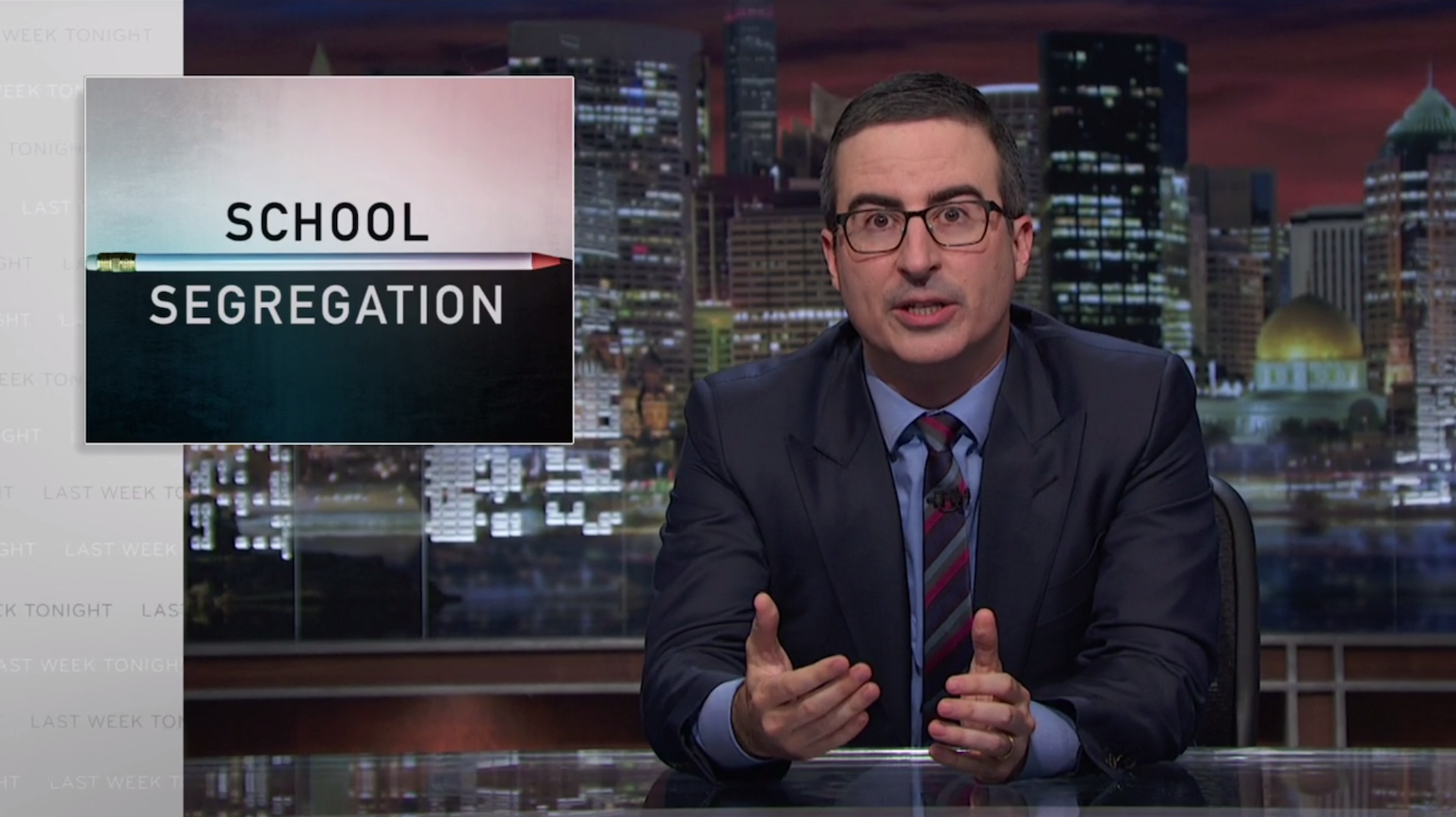
There are a few misconceptions about school segregation that have been floating around. One is that it stopped with Brown v. Board of Education, the landmark case that ended in 1954 with the Supreme Court declaring that mandating segregation was unconstitutional. Another is that school segregation is a problem confined to the South. This line of thinking goes that the South is where racism comes from, and we should just blame it all on them. But as John Oliver pointed out on Sunday's Last Week Tonight, not only is school segregation still an issue in the United States, it's a problem even in liberal hotbeds. According to UCLA's Civil Rights Project, the South is the country's least-segregated region for black students. The most segregated? The state of New York, due in large part to New York City.
More alarming than any regional breakdown is that schools are becoming more and more segregated. In 1988, there were 2,752 schools where one percent or less of the student body was white; by 2011, that number had more than doubled, to 6,727. How is this possible? For one, desegregation takes work. It is far easier logistically for kids to simply attend their neighborhood schools, and because so many neighborhoods are segregated, so too then are the schools. The issue has also been brought up in courts across the country, which have largely ruled against various desegregation plans. "The prevailing narrative became that desegregation imposed too high of a cost on students for a benefit that was no longer necessary," Oliver says.
But it is necessary. Unsurprisingly, he says, school with predominantly black or Latino student bodies have fewer resources, worse facilities and less experienced teachers than predominantly white schools. This matters. Berkeley professor Rucker Johnson found that black children who attended desegregated schools did better than siblings who attended segregated schools, as did their children. Those that attended desegregated schools were more likely to graduate—and were 22 percent less likely to be incarcerated. He also found no effect whatsoever on white children from schools being desegregated.
The effects of segregation extend far beyond academic performance. Because of the vast disparity in resources and standards, children attending predominantly black or Latino schools often feel that they aren't as good as white children. The inverse is true, as well. Oliver played a clip of a white child being asked to point to "good" children and "bad" children when presented with a series of cartoons featuring various skin tones. You can guess the results. The child's mother looked horrified, and rightfully blamed it on a lack of exposure to other races. "Segregated schools cause devastating harm to actual children," says Oliver. "Not just to their education, but to their very sense of self worth."
If we want to live in a progressive society—and, as this election has taught us, not all of us necessarily do—we need to do more than simply make mandated segregation illegal; we need to be "proactive," as Oliver says, about making sure our schools are desegregated. "While this always gets framed as an issue about parents and their children, it's actually about everybody, because kids grow up," he says. "Those little doctors, soldiers, police officers and superheroes asking you for candy [on Halloween] might in a decade or so be actual doctors, soldiers, police officers and assistant directors of human resources, and there are massive and multiple benefits for all of us if they interacted a lot more from an early age."
Uncommon Knowledge
Newsweek is committed to challenging conventional wisdom and finding connections in the search for common ground.
Newsweek is committed to challenging conventional wisdom and finding connections in the search for common ground.
About the writer
Ryan Bort is a staff writer covering culture for Newsweek. Previously, he was a freelance writer and editor, and his ... Read more
To read how Newsweek uses AI as a newsroom tool, Click here.






